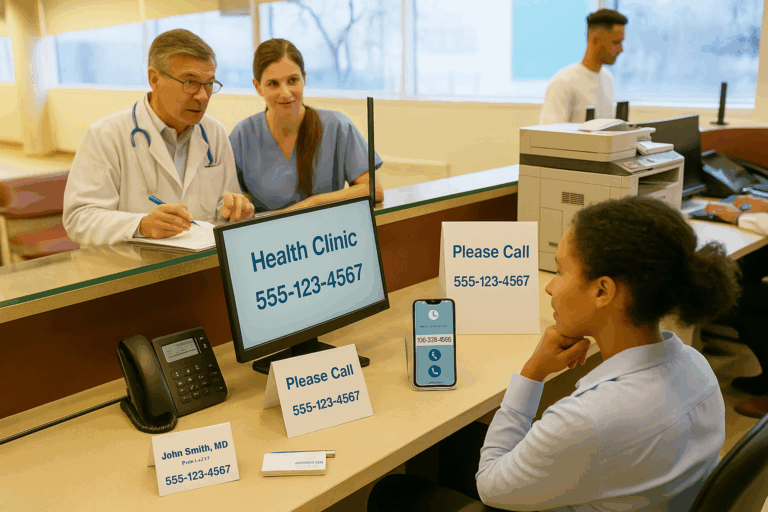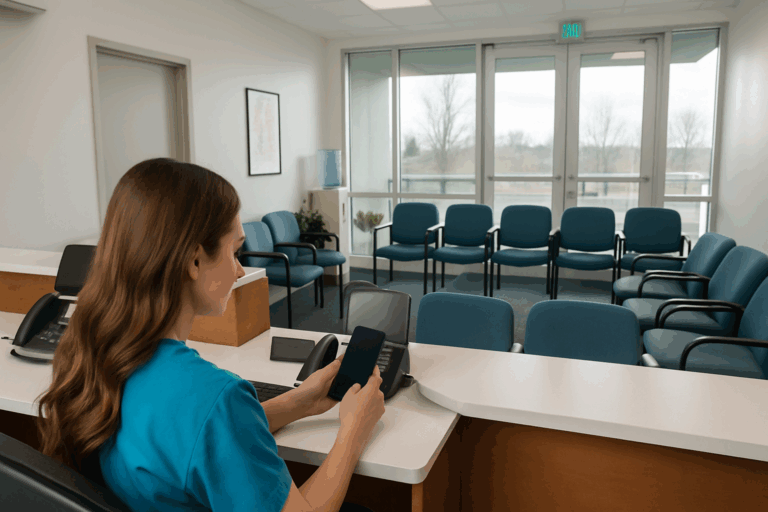Credentialing, hiring and retaining personnel, maintaining a solid revenue cycle — running a successful medical practice requires more than simply seeing patients. Unless you work in a doctor’s office or run one, you probably aren’t aware of what goes on behind the scenes.
Even the most experienced practice administrator must deal with changes within the healthcare industry. For example, the Affordable Care Act was enacted in 2010, the Centers for Medicare & Medicaid Services (CMS) established the EHR Incentive Programs and Meaningful Use State 1 in 2011, and the COVID-19 pandemic skyrocketed virtual care utilization.
Although it certainly hasn’t made such a “loud” impact on healthcare, the introduction and emergence of Voice Over Internet Protocol (VoIP) phone systems have enabled medical practices to streamline and secure communications, an especially crucial component in engaging patients and ensuring HIPAA compliance.
How is Healthcare VoIP Different?
Medical practices require technology to enhance patient care, automate repetitive administrative tasks and securely handle protected health information (PHI). Such solutions also must promote patient engagement by communicating with patients in ways these healthcare consumers prefer.
Healthcare VoIP phone systems use the internet rather than a physical landline, negating hefty installation fees, expensive hardware and rigid calling plans. By using the same broadband on which you rely for your Wi-Fi access, these tools enable HIPAA-compliant multi-form communication, including voice, SMS, video and faxing.
Unlike non-cloud-based communications platforms, VoIP phone systems built for healthcare offer advanced integration with other healthcare systems, whether EHRs, practice management solutions, billing software or another technology tool you already have in place. And they’re quickly and affordably scalable, perfect for physician practices with multiple locations.
Tips for Selecting the Best VoIP System for Your Practice
Now that you understand the merits of a VoIP communications platform, you must select one. Easy enough, right?
You could just Google “VoIP phone systems” and pick the first one you see. You probably don’t do that for other technology components for your practice, though, and we don’t recommend it in this case, either.
Choosing a HIPAA-compliant VoIP phone system with various features and functionalities — without breaking your budget — involves knowing what should be included and how those components will benefit your practice. Many VoIP systems use voicemail-to-email transcription, allowing providers to quickly triage patient concerns even when they can’t answer the phone immediately. But not all will enable you to utilize desk phones, existing mobile phones, web phones or a combination of the three.
Another significant differentiation is that not all VoIP phone systems are HIPAA-compliant. Some must follow strict protocols in encryption, physical security of PHI, employee training, auditing, product security and password protection. If you’ve been in healthcare for any length of time, you know there are costly civic and criminal penalties for lack of compliance with HIPAA.
A HIPAA-compliant phone system should offer features that should be a part — at no additional cost —of whatever VoIP communications platform you choose should include:
- Web and machine faxing: These capabilities combine secure traditional faxing and convenient web app functionality to streamline the process of sending and receiving records, prescription refills and interoffice communications
- Browser-based video calling: Patients can quickly join video calls through a web browser, reducing frustration and technical barriers to help physicians reach more patients, thereby enhancing the quality, accessibility and efficiency of patient care.
- Call center routing: This feature guarantees that patients can easily reach the right provider to handle their requests by enabling efficient handling of multiple calls and dynamic agent allocation. It also routes calls based on staff responsibilities to improve patient and staff satisfaction and mitigate unnecessary medical errors.
- Call recording: You and your staff must know and remember a lot of information. This feature lets you record and store calls—ideally on a HIPAA-compliant server—for improved call management and record-keeping.
- Unlimited calls, texts and faxes: A comprehensive communication package offering unlimited messaging eliminates additional usage charges while improving office workflow and patient engagement.
- Spam prevention: Avoid annoying robocalls through screening created with AI-based spam detection.
Don’t Delay: Schedule Your Demo of RingRx Today
At RingRx, we offer a customizable enterprise-quality VoIP phone system that streamlines patient communication using mobile phones or desk phones. Designed for healthcare practices like yours, it includes all these features and more. Request a demo to learn more!




